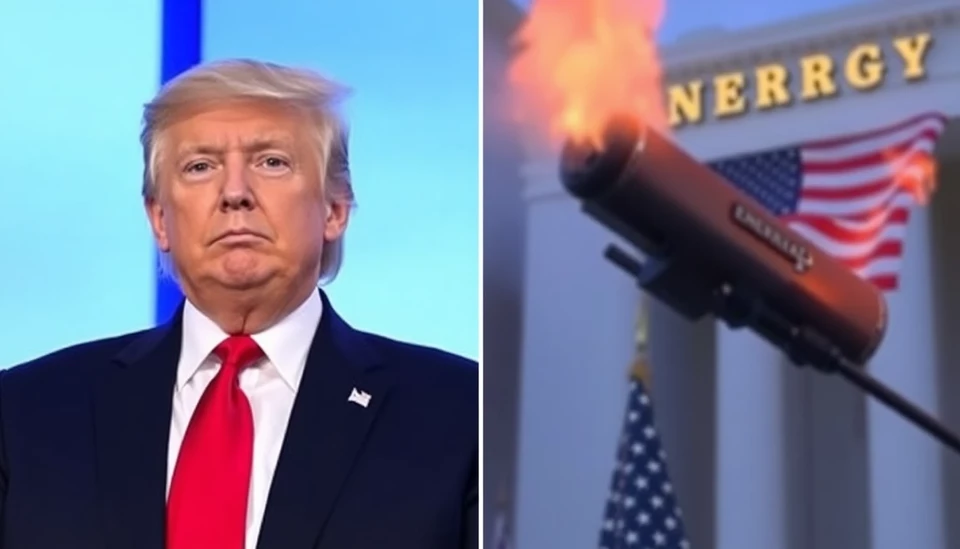
The U.S. Department of Energy is strategically ramping up efforts to finalize a series of high-stakes deals worth billions of dollars before the potential return of former President Donald Trump to the political arena. This proactive approach is primarily driven by concerns over policy shifts that could accompany a Trump re-election campaign, which may fundamentally alter the landscape for renewable energy and government contracts.
In recent months, the Biden administration has been actively negotiating significant contracts and partnerships aimed at advancing green energy initiatives and enhancing the nation’s energy independence. These efforts are not just about safeguarding economic interests; they also reflect a broader strategy to secure long-term commitments to clean energy projects that may face challenges under a different administration.
With Trump’s historical opposition to many of the policies championed by the current administration, including efforts to combat climate change and pivot towards renewable energy sources, stakeholders in the energy sector are racing against time. Many are concerned that a change in leadership could spell an end to the favorable conditions that have allowed for innovation and investment in clean energy technologies.
Under the Biden administration, the Energy Department has unveiled a range of initiatives aimed at bolstering the U.S.'s renewable energy capabilities. These initiatives include substantial investments in solar, wind, and battery technology that have struggled to gain ground in previous administrations. The urgency to wrap up these deals stems from the understanding that these advancements could be jeopardized, or even reversed, should Trump return to power.
Industry experts warn that, should Trump take office again, policy reversals could result in a decrease in federal support for renewable energy projects. Consequently, companies engaged in these sectors are eager to finalize contracts and secure funding that would ensure their projects continue, regardless of potential shifts in political leadership. This urgency in negotiations has spurred a flurry of activity within the Department of Energy, focusing not just on economic growth, but also on the critical nature of addressing climate change.
Amid the backdrop of political uncertainty, the Energy Department is prioritizing deals that not only drive innovation but also emphasize resilience against climate impacts, thereby aligning with the broader goals of energy security. The potential ramifications of inaction are significant, emphasizing the necessity for stakeholders to act swiftly as they navigate this complex and evolving energy landscape.
As the deadline approaches for these negotiations, the pressure mounts for the Biden administration and industry players to secure substantial agreements that could define the future of America's energy strategy. The stakes are high, not just for current stakeholders, but also for future generations who will bear the consequences of today’s decisions.
In conclusion, with the unpredictability of the political climate, the Energy Department's move to aggressively close these deals underscores the intersection of energy policy and political strategy. As the former president looms large on the horizon, the urgency to act grows ever more pressing.
#EnergyDepartment #Trump #CleanEnergy #BidenAdministration #Politics #RenewableEnergy #ClimateChange #EnergyIndependence
Author: Sophie Bennett




